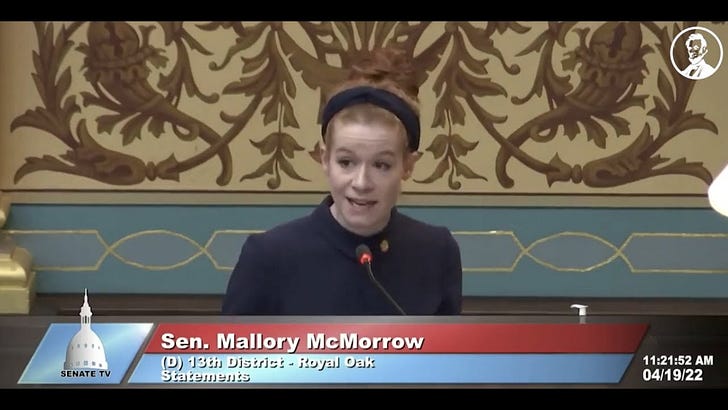Greetings Chaise Lounge readers! So glad to have you back. And if you are new to this space, thanks for trying us out. I hope that you find the newsletter to be lively and informative. Feel free to email me with ideas, comments, or reflections. And as always, share and comment liberally!
National updates
NWSL players band together in fighting sexual harassment
The National Women’s Soccer League (NWSL) is facing serious allegations of sexual coercion and harassment by coaches. Since last week, four coaches have been fired including Paul Riley of the Carolina Courage. Mana Shim had filed allegations against Riley in 2015 when he was coach of the Portland Thorns, but nothing came of the allegations. When the Western NY Flash team where Riley was coaching was purchased by the Courage, owner Steve Malik says “We conducted due diligence to continue with Mr. Riely and the coaching staff. We were made aware of an investigation into Mr. Riley’s behavior in 2015 and were subsequently assured that he was in good standing.”
Family members of missing women of color lack support
With the tragic murder of Gabby Petito, many families of missing women of color were both sad for the Petito family while also frustrated that their loved ones do not receive the press coverage that Petito’s case did. The 19th website reports that over 250,000 women were reported missing last year and 100,000 of them were women of color representing an outsized portion of the missing. But their cases receive little press. Some states like Minnesota, California, and Illinois are creating task forces to address these inequities. And Secretary of the Interior Deb Haaland has announced a new task force focused on missing and murdered Native and Indigenous women.
Abortion law updates
On Wednesday, U.S. District Judge Robert L. Pitman issued an order blocking the implementation of Texas state law banning abortions after the sixth week of pregnancy or when a heartbeat can be heard. The lawsuit was filed by the U.S. Department of Justice. In his 113 page ruling, Judge Pitman states, “Despite the State’s attempts to obscure the question … people seeking abortions face irreparable harm when they are unable to access abortions; these individuals are entitled to access to abortions under the U.S. Constitution; S.B. 8 prevents access to abortion; a preliminary injunction will allow — at least for some subset of affected individuals — abortions to proceed that otherwise would not have.”
U.S. Attorney General Merrick Garland hailed the ruling as a “victory for women in Texas and for the rule of law.” The injunction is temporary and all expect an appeal. Many abortion providers are weighing their options in terms of going back to delivering abortion services. Their concern is that if the injunction is lifted on appeal, they could be sued retroactively.
Will Haugen’s Testimony Finally Lead to Changes at Facebook?

Earlier this week, former Facebook product manager Frances Haugen testified before the Senate Committee on Commerce, Science, and Transportation. Haugen claimed that in spite of Facebook’s own research detailing the harms that social media causes for teens, especially teen girls, they made no changes to address these harms. She was referring to all of Facebook’s companies including Instagram.
Americans heard an indictment of Facebook’s practices of “putting profit over people.” Haugen leaked documents from Facebook to the Wall Street Journal last week that implicated the social media giant in harming children’s well-being. She brought the receipts that will hopefully begin to force Facebook to become more transparent in their business practices and reveal their algorithmic methods.
As a former middle school teacher, I can attest to the fact that social media plays an outsized role in how preteens and teens view themselves. Middle school students already obsess over their appearances and having the ability to compare themselves 24/7 on their social media feeds is unhealthy. When you add an algorithm that feeds girls advertisements for weight loss or glorifies eating disorders, you have a recipe for serious mental harm.
Eloise Rich, a high school senior in Chapel Hill, North Carolina, says that it is completely natural for teens to compare themselves to one another on Instagram. She says, “People purposely try to make themselves look better with filters and photo-editing on Instagram. I’ve seen people make their chins or bodies look slimmer, and when I was younger, I would edit out my own acne.” She went on to say that while she had seen some guys do this as well, it is primarily girls who do so.
She noted the positives about Instagram in terms of helping you figure out your own style. But she also mentioned that she is fed suggested posts that deal with dieting in spite of the fact that she does not search for these topics. She imagines that this is because she is a teenage girl. She has noticed that her male friends' Instagram feeds are full of suggestions for how to get shredded abs.
Eloise also mentioned another concern she had regarding that social media, and especially Instagram. She noticed that particularly during the pandemic, so many infographics went up on Instagram regarding social issues from BLM to vaccines. She said that her friends “felt pressure to reshare those posts and felt guilty if they didn’t.” This makes her wonder if the sharing was more performative activism rather than reflective of people’s authentic feelings on the issues.
The fact that Facebook knew that their algorithms were harming children and did not make changes as a result of that knowledge is reprehensible. Intentionally hurting children’s mental health in the name of profits is wrong, full stop. It does not matter who makes money on the stock market if we have generations of kids who are anxious and developing eating disorders and other mental health issues because of the media they are fed. And that is what Ms. Haugen was arguing. She wants the federal government to take over regulation of Facebook and Instagram. In particular, she wants Facebook to be required to be transparent about the algorithms used and the effect that they have on people. While she is not alone in this desire, she is the first to bring evidence to the table showing that Facebook does not make changes to the algorithms even when they know that they cause mental harm.
I don’t think anyone is actually surprised that Facebook employees lied to Senators during hearings last week, but it sure was refreshing to listen to someone who is willing to put her career on the line in an attempt to correct a system that has run amok. As the Senate committee heard and responded to Haugen’s testimony, it appeared that Senators from both parties are ready to get serious about regulating Facebook.
Senators Ed Markey (D-MA) and Richard Blumenthal (D-CT), and Congresswoman (FL-14) Kathy Castor are reintroducing the Kids Internet Design and Safety (KIDS) Act in order to “to stop online practices such as manipulative marketing, amplification of harmful content, and damaging design features, which threaten young people online.”
The legislation seeks to ban push alerts, badges, like buttons, and autoplaying of videos. They are also looking to quash manipulative marketing techniques like recommending content that includes host-selling, or influencer marketing, such as “unboxing videos” to children and young teens. The legislation prohibits the recommendation of content that involves nicotine, tobacco, or alcohol to children and young teens, or exposing children and young teens to marketing with embedded interactive elements.
Blumenthal is finding like-minded allies across the aisle. Republican Senator Marsha Blackburn also registered concern and is lobbying to update the Children’s Online Privacy Protection Act of 1998. There are a slew of proposals for addressing big tech, and it will be difficult to move through them all to get enough votes.
While Blumenthal and his Congressional allies are hopeful that they can at least get legislation aimed at children’s mental health passed, he also says, “It’s complex, it’s challenging and there’s no question that Big Tech will spend tens of millions of dollars, and use armies of lobbyists and mount massive propaganda campaigns.” It seems that starting with the children is the least they can do.
Just for fun
I read this story of long lost love this morning and thought I would share it with my readers. It is a story of love and compassion. I hope that it brings you the warmth of heart that it gave me.














Share this post